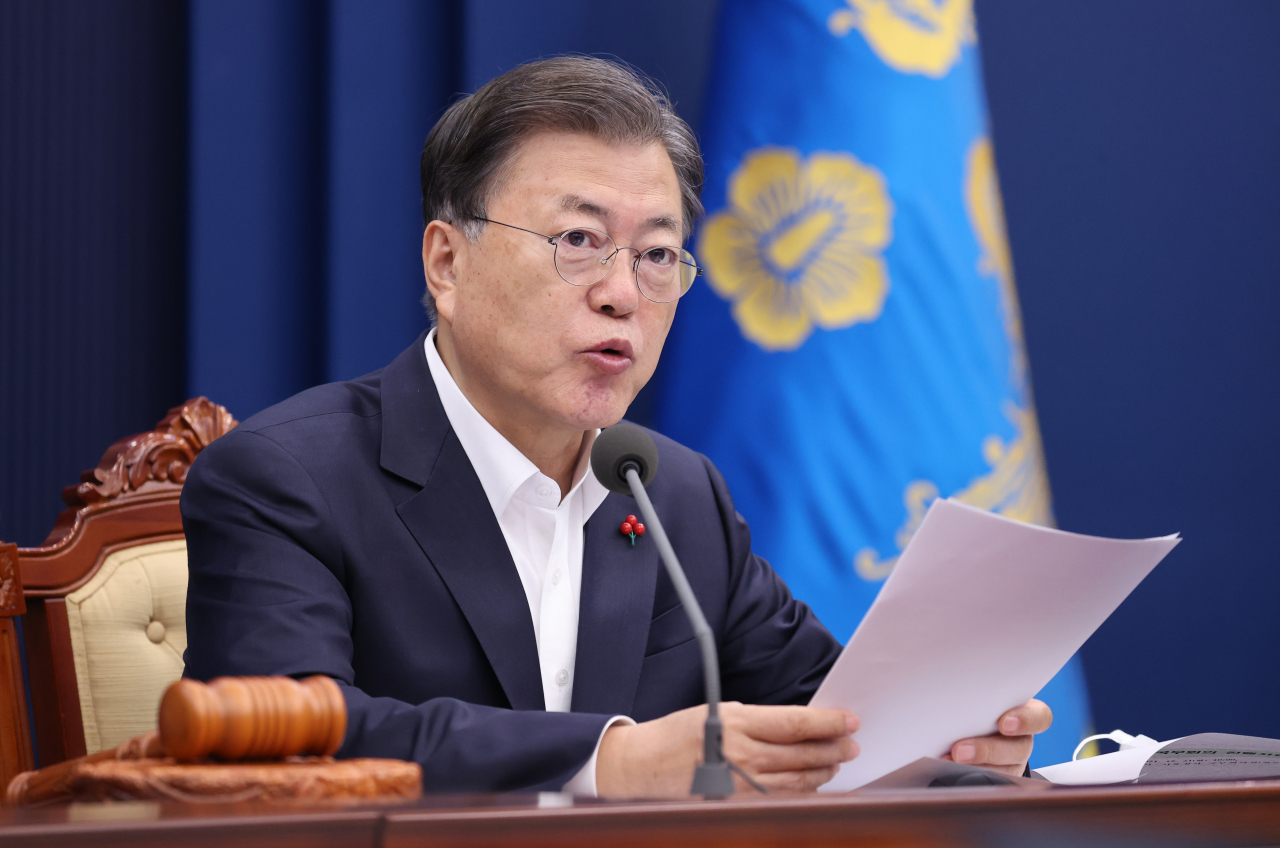South Korea to expand cooperation with US on supply chain, technologies in 2022
By Ahn Sung-miPublished : Dec. 23, 2021 - 15:45

South Korea’s Foreign Ministry said Thursday the country would look to expand cooperation with the US on many fronts next year, including on supply chains and cutting-edge technology, as well as North Korea’s denuclearization.
The Foreign Ministry, along with the Unification and Defense Ministries, jointly delivered a written policy report for 2022 to President Moon Jae-in on Monday, detailing Seoul’s priorities and direction on diplomacy, security and North Korean policies.
“We will further expand the horizons of cooperation between South Korea and the US by continuing to push for future-oriented cooperation projects in areas of public health, climate change, supply chains and cutting-edge technologies,” the Foreign Ministry said in its report.
Specifically, it will strengthen the strategic partnership with Washington in the areas of artificial intelligence, information and communications, data, quantum technology, bio technology and space development, among others, the ministry said.
The policy report comes at a precarious time, as the US and China are increasingly locked in an intense economic and geopolitical rivalry. Washington has been putting efforts to effectively corral allies to counter China’s ambition to dominate key industries, including semiconductors.
In light of supply-chain risks and recent restrictions on key exporters, the ministry said it will ramp up efforts to deal with the so-called “economic security” issues. It plans to establish a center on economic security in the first half of next year as a means to bolster its responses.
On China, the ministry said it will bolster high-level exchanges and strengthen efforts to prevent any future conflict as next year marks the 30th anniversary of the establishment of their bilateral ties.
“South Korea and China have continued communication with shared understanding that when the COVID-19 situation stabilizes, we will push for Chinese President Xi Jinping’s visit to Korea,” said Yeo Seung-bae, deputy minister for political affairs at the Foreign Ministry, at the press briefing on Thursday, adding the two sides are closely communicating over the matter. “We agree that communication at all levels, including between the presidents, is very important for the development of bilateral relations.”
Yeo also reiterated the government’s stance that it remains undecided on whether Seoul will join the US and other countries in a diplomatic boycott of the Beijing Winter Olympics in February.
On relations with Japan, Seoul will continue dialogue with Tokyo, while pursuing a “two-track” approach of separating historical disputes from social and economic cooperation.
In regard to dealing with North Korea, the ministry said it would strengthen ties with the US, China, Japan and Russia to stably manage the situation on the Korean Peninsula and revive dialogue with Pyongyang.
The Unification Ministry, in charge of inter-Korean affairs, said it will put all-out efforts to revive the stalled inter-Korean talks and continue to push for declaring an end to the 1950-53 Korean War.
“If the current stalemate continues to the early part of next year, the security uncertainties could deepen uncertainty,” the ministry said. “We will continue to stably manage the situation and create a momentum to revive talks (with North Korea) at an early date.”
Vice Unification Minister Choi Young-joon told a press briefing that the government is pushing for the end-of-war declaration as an “entry point for peace on the peninsula and a catalyst for denuclearization negotiations.”
“The end-of-war declaration is an approach for the two Koreas and the US to put down hostilities and build trust without a dramatic shift in the status quo,” said Choi. “It will be a good starting point for restarting the stalled talks between the two Koreas, as well as between the US and North Korea.”
The ministry said it would seek to improve inter-Korean relations to facilitate denuclearization talks between the US and North Korea. It will consider reciprocating the North with an easing of sanctions and economic cooperation, in response to the North’s potential denuclearization steps.
Meanwhile, the Defense Ministry said it planned to “substantially” strengthen space security capabilities by reinforcing personnel with expertise and securing a military satellite, as well as expand international cooperation in this regard.
It also aims to reinvigorate the stalled transfer of wartime operational control from Washington to Seoul, by completing the full operation capability assessment -- the second step in a three-phase verification process to meet the conditions for the takeover -- next year.



















![[Today’s K-pop] BTS pop-up event to come to Seoul](http://res.heraldm.com/phpwas/restmb_idxmake.php?idx=642&simg=/content/image/2024/04/17/20240417050734_0.jpg&u=)